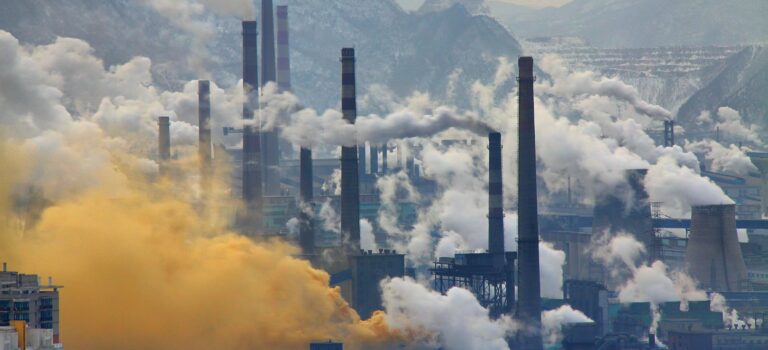Peer-Reviewed Article · Jul 28, 2022
Communicating the human causes of global warming increases public engagement
By Parrish Bergquist, Jennifer Marlon, Matthew Goldberg, Abel Gustafson, Seth Rosenthal and Anthony Leiserowitz
Filed under: Beliefs & Attitudes

We are pleased to announce the publication of a new article, “Information about the human causes of global warming influences causal attribution, concern, and policy support related to global warming” in the journal Thinking & Reasoning.
Scientists have known for over 150 years how increased carbon dioxide in the atmosphere (from fossil fuel burning and land use change) acts like a heat-trapping blanket, causing global warming. Yet, public understanding of this process is low. As of 2022, over 40% of Americans do not understand that human activities – especially burning coal, oil, and methane gas – are responsible for all of the observed increase in global temperatures during the past century.
There are many reasons for this lack of public understanding, including misinformation, poor science communication, and limited media reporting on climate change. Moreover, the scientific nature and intense political polarization of the issue inhibits many people from discussing it with family and friends for fear of conflict or getting the details wrong. Yet, social science demonstrates that talking about the issue of climate change as well as understanding its causes is key to raising awareness and building support for climate action.
Using four experimental and one control condition, we tested whether information about the human causes of global warming increases Americans’ beliefs and concerns about global warming and support for climate policies. All four experimental conditions began with the heat-trapping blanket metaphor:
“Carbon dioxide in the atmosphere traps heat and warms the Earth, like a blanket traps heat and warms your body. Since the mid-1800s, humans have been burning fossil fuels (coal, oil, and gas) to make electricity, heat and cool buildings, and fuel our transportation systems. Burning fossil fuels has released billions of tons of carbon dioxide pollution into the atmosphere, making that blanket thicker and trapping more heat, leading to global warming.”
Condition #1 then used the blanket metaphor + explained how we know that climate change is not naturally caused; condition #2 used the blanket metaphor + information about climate change impacts; condition #3 used the blanket metaphor + information about climate change solutions; and condition #4 used the blanket metaphor + information about both impacts and solutions. In the control condition, participants read an unrelated passage about artificial intelligence.
Participants were then asked to estimate what proportion of global warming is due to human activities. On average, respondents in the four treatment conditions attributed 70% of global warming to human activities. By contrast, respondents in the control group attributed 65% of global warming to human activities. The four treatment conditions increased understanding of the human causes of climate change among both Democrats and Republicans.
We also found differences among the four experimental groups and the control group in their concern about climate change and their support for climate policies (see chart below), although those increases are smaller than the increases in understanding that climate change is human-caused.
Importantly, there were no backlash effects among Republicans, and in fact understanding increased among Republicans more than among Democrats, on average. This suggests that when informed about climate change causes, impacts and solutions, most Americans will update their own climate change beliefs, risk perceptions, and policy support.
These results are consistent with research by Bord et al. (2000) and with Ranney and Clark (2016) who developed the website howglobalwarmingworks.org, which uses more scientific language to explain the physical mechanism behind the “heat-trapping blanket”. Whether the blanket metaphor or the physics-based explanations are more effective requires further research. In either case, however, providing basic information about the human causes of global warming improves public understanding of the problem.

